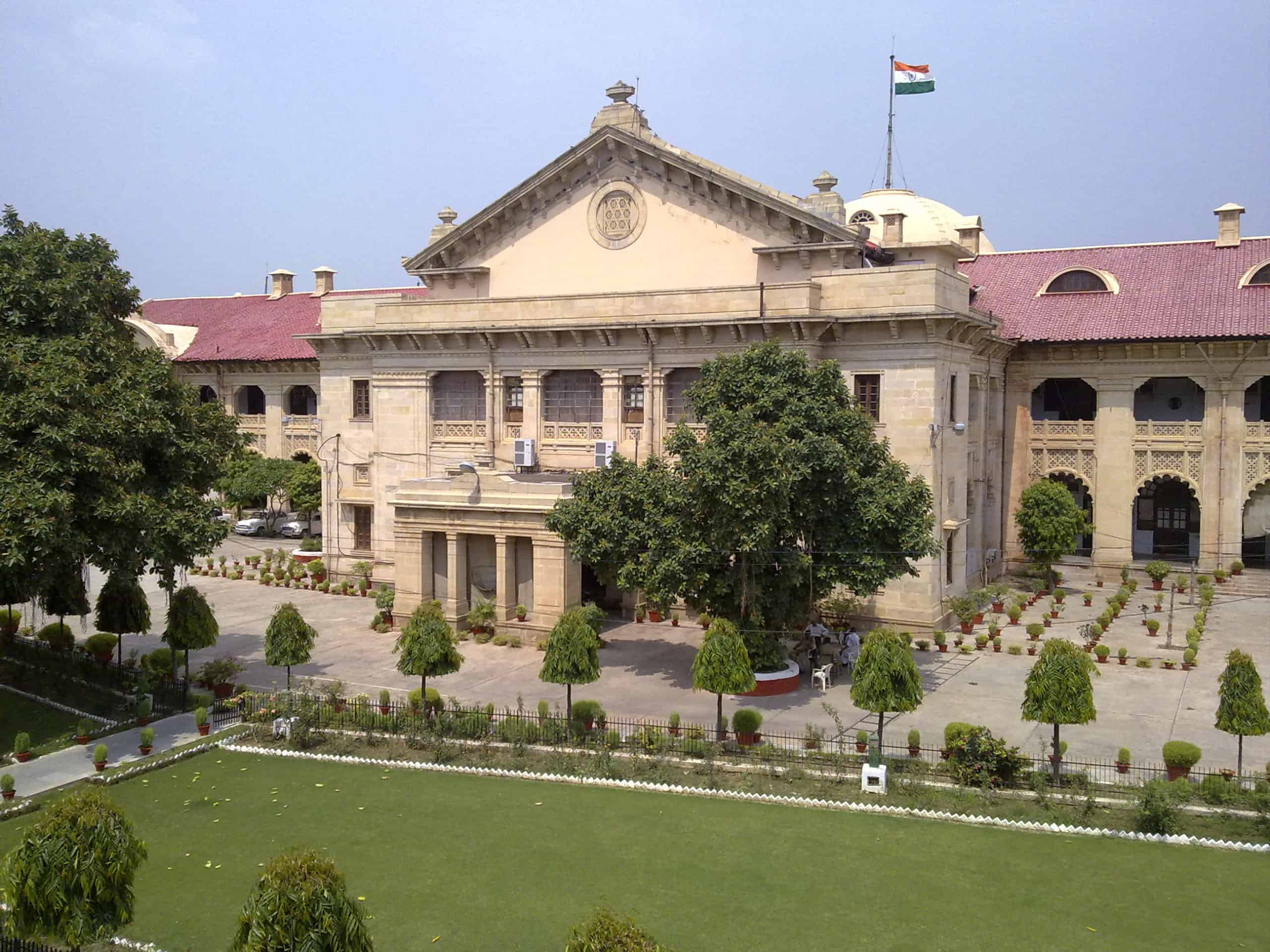The Allahabad High Court on Thursday called love marriages as “easily entered” unions and remarked that such relationships were also “easily” resulting into matrimonial disputes between the couples.
The division bench of Justice Vivek Kumar Birla and Justice Donadi Ramesh made the comment while stressing on the need for amending the grounds for divorce under Hindu Marriage Act to address modern situations.
In particular, the Court asked the Union of India to consider amending the Hindu Marriage Act in light of observations made by the Supreme Court in 2006 for including the ground of irretrievable breakdown of marriage as a ground for grant of divorce.
Justice Vivek Kumar Birla and Justice Donadi Ramesh
The Court observed that when the Hindu Marriage Act was enacted in 1955, the sentiments and respect attached to the matrimonial ties was different and the manner in which marriages are taking place now was “unheard of in those days.”
It cited “education, financial independence, breaking of caste barriers, modernisation, effect of western culture” as the reason for such changes.
It added that society is becoming more and more open and individualistic in nature, leading to lesser need of emotional support as well.
“Whether it is a love marriage or is an arranged marriage, all such factors do affect the relationship between the two. However, needless to say that to every action, there is equal reaction. Easily entered marriages like love marriages are also easily resulting in matrimonial dispute between the two. No matter, who is responsible for the same. The parties are not willing to continue such relationship or atleast one party starts living separately,” the Court remarked.
The judges said such “facts” were clearly emerging from their experiences, while dealing with such disputes.
“Easily entered marriages like love marriages are also easily resulting in matrimonial dispute.”
Allahabad High Court
The Court made the observations while dealing with an appeal moved by a doctor, who has also served in the Indian Army for about 30 years, against the Family Court’s refusal to grant him divorce from his wife, who is also a senior doctor.
The couple got married in 2007. It was their second marriage. The wife had allegedly deserted the husband six years before he moved for divorce in 2015. The divorce was also sought on the grounds of cruelty.
However, the Family Court did not accept the husband’s case. It led to the filing of an appeal before the High Court in 2019. The wife did not enter an appearance in the case and was thus proceeded ex parte.
The husband’s main contention before the High Court was that the wife was staying away from him for a long time and that comes under mental cruelty.
Considering the submissions, the Court at the outset noted that irretrievable breakdown of marriage has been recognized as a ground for divorce by the Supreme Court since long.
The Court particularly made mention of the case of Naveen Kohli Vs. Neelu Kohli in which the apex court in 2006 spoke about including irretrievable breakdown of marriage as a ground for divorce.
However, the High Court remarked that even after about 18 years, nothing has been done in this regard.
“On one hand, the law recognises desertion of a petitioner for a continuous period of not less than two years immediately preceding the presentation of the petition as one of the grounds for grant of divorce, whereas on the other hand, it is not understandable as to why the ground of irretrievable break down is not being recognized as one of the grounds, when the parties are living separately for so many years and in some cases, for decades together,” it added.
The Court further said that in many cases, the matrimonial life between parties only remains for a namesake.
It is because of this reason the Supreme Court has consistently felt that continuance of such unworkable matrimonial ties is nothing but mental cruelty on the parties, the Court added.
“To our mind, irretrievable break down is an assessment of circumstances prevailing in lives of the parties to the marriage and if proved, would amount to mental cruelty,” it said.
In the context of the present case, the Court said since the wife has been staying away from the husband for a very long now, it clearly shows she is not interested in continuing the matrimonial life.
Finding the marriage to have irretrievably broken down, the Court said that certainly the case has to be construed as a case of ‘mental cruelty’ on the husband as the marriage has become totally unworkable and emotionally dead.
“On that note, divorce can be granted,” it said, while allowing the appeal and granting a decree of divorce in favour of the husband.
Meanwhile, the Court directed the Registrar (Compliance) to send a copy of this judgment to Secretary, Ministry of Law and Justice, Department of Legal Affairs, Government of India and the Law Commission for consideration of the matter in view of the observations of the apex court in the case of Naveen Kohli and other judgments.
Advocates Tarun Agarwal and Pankaj Agarwal represented the appellant.
Source Link



